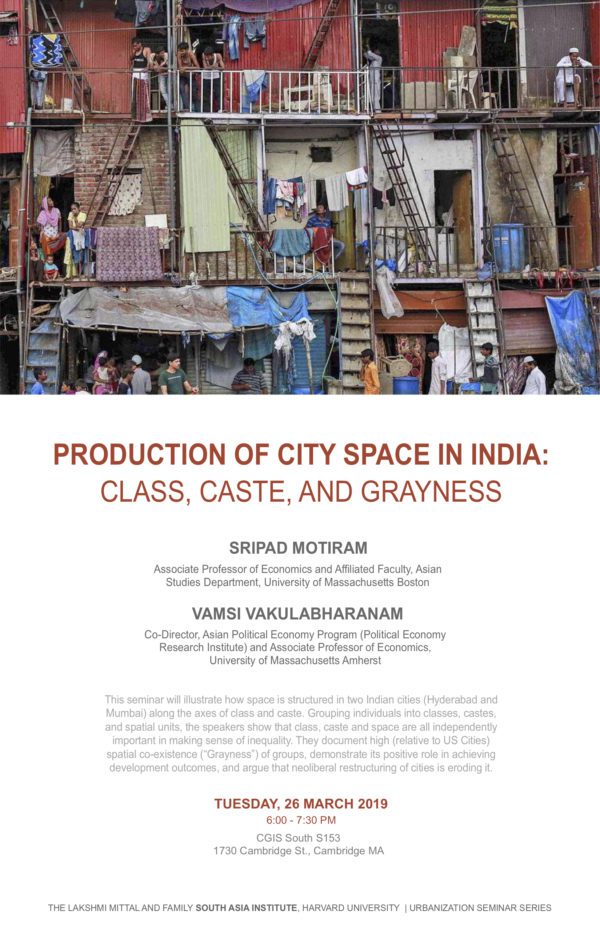Production of City Space in India: Class, Caste, and Grayness
WHEN
Tue, Mar 26, 2019 from 06:00pm — 07:30pm, ET
{
"name":"Production of City Space in India: Class, Caste, and Grayness",
"description":"Sripad Motiram, Associate Professor of Economics and Affiliated Faculty, Asian Studies Department, University of Massachusetts Boston Vamsi Vakulabharanam, Co-Director, Asian Political Economy Program (Political Economy Research Institute) and Associate Professor of Economics, University of Massachusetts Amherst Sripad Motiram and Vamsi Vakulabharanam will discuss how space is structured in two Indian cities, Hyderabad and Mumbai, along […]",
"startDate":"2019-03-26",
"endDate":"2019-03-26",
"startTime":"18:00",
"endTime":"19:30",
"location":"",
"label":"Add to Calendar",
"options":[
"Apple",
"Google",
"iCal",
"Microsoft365",
"MicrosoftTeams",
"Outlook.com",
"Yahoo"
],
"timeZone":"America/New_York",
"inline":true,
"listStyle":"dropdown-static",
"iCalFileName":"Mittal-Event-2019-03-26"
}
Sripad Motiram, Associate Professor of Economics and Affiliated Faculty, Asian Studies Department, University of Massachusetts Boston
Vamsi Vakulabharanam, Co-Director, Asian Political Economy Program (Political Economy Research Institute) and Associate Professor of Economics, University of Massachusetts Amherst
Sripad Motiram and Vamsi Vakulabharanam will discuss how space is structured in two Indian cities, Hyderabad and Mumbai, along the axes of class and caste. By grouping individuals into classes, castes, and spatial units, they will show that these factors are all independently important in making sense of inequality. Together, they document high (relative to US cities) spatial co-existence — which they call “Grayness” — of groups, and will demonstrate its positive role in achieving development outcomes, arguing that the neoliberal restructuring of cities is eroding it.

